Conversation-Based Pricing for WhatsApp API Made Simple
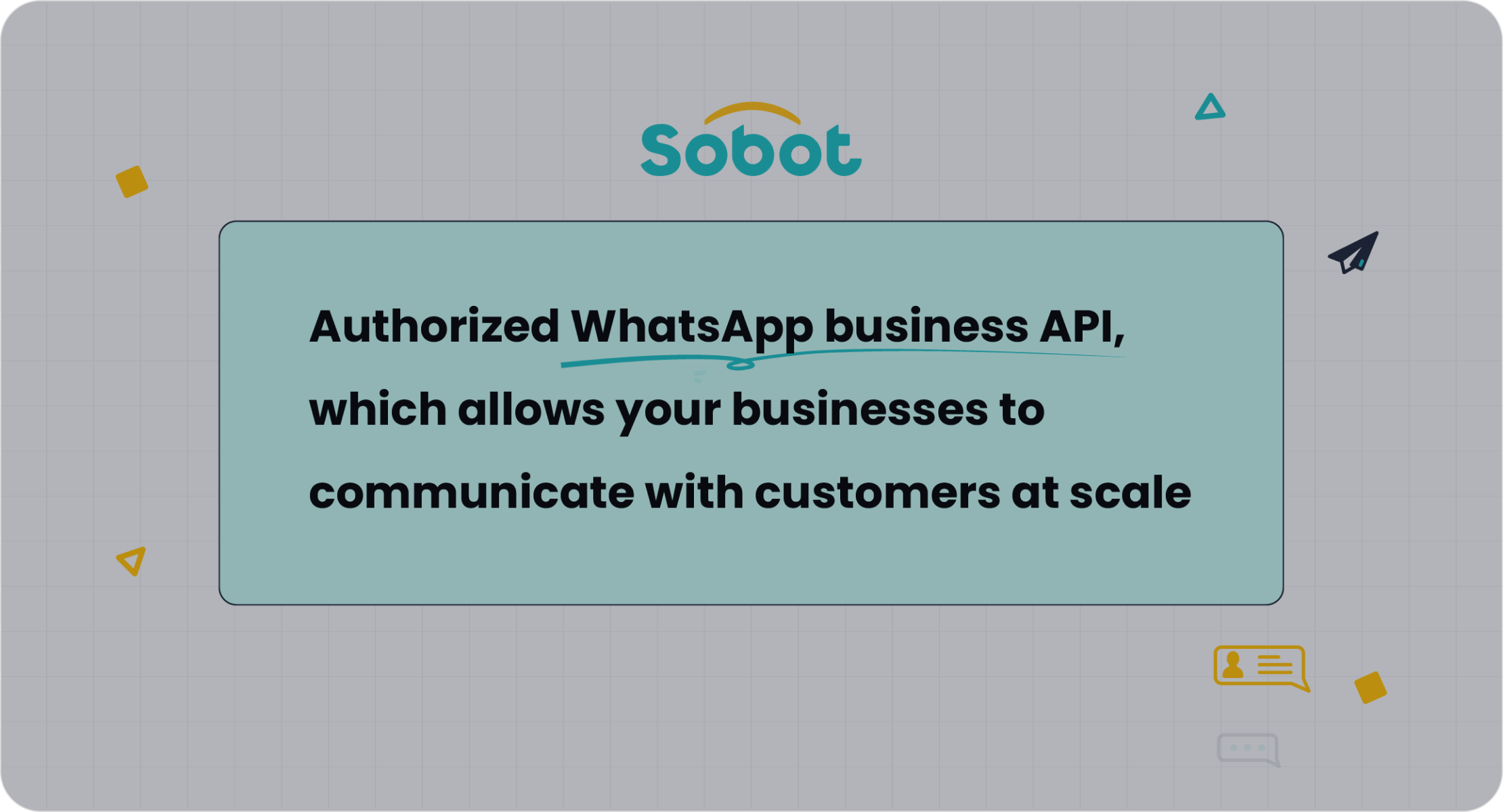
When you use WhatsApp’s Business API, conversation-based pricing simplifies communication costs. Unlike traditional channels like SMS or email, where conversion rates hover between 2-5%, WhatsApp achieves an impressive 45-60% conversion rate. This pricing model directly links costs to conversations, letting your business budget effectively and invest in building stronger customer relationships.
Sobot’s WhatsApp Business API empowers you to leverage this model seamlessly. Features like 24/7 chatbot support, smart routing, and data analytics ensure efficient customer interactions. By adopting this approach, your business can reduce uncertainties and maximize communication ROI. Curious about what is the cost of WhatsApp Business API? Sobot’s solutions help you navigate pricing options while maintaining cost efficiency.
What Is Conversation-Based Pricing in WhatsApp Business API?
Definition and Key Features
Conversation-based pricing in the WhatsApp Business API is a model that charges businesses based on conversations rather than individual messages. This approach simplifies cost management by grouping all messages exchanged within a 24-hour conversation window into a single charge. It replaces the traditional per-message pricing structure, offering businesses more predictable costs.
Key features of this pricing model include the ability to optimize conversation flow, target and schedule campaigns, and monitor performance. For example, you can use message templates to initiate conversations efficiently or track metrics like delivery rates and engagement to refine your communication strategy. Over 5 million businesses have adopted the WhatsApp Business API, showcasing its effectiveness in managing costs and improving customer interactions.
How the 24-Hour Conversation Window Works
The 24-hour conversation window is central to the WhatsApp Business API pricing structure. Once you send a message to a customer, a 24-hour period begins during which all subsequent messages are grouped into a single conversation charge. This window applies to both user-initiated and business-initiated conversations.
For instance, if a customer replies to your message within the window, you can continue the conversation without incurring additional charges. Monitoring metrics like delivery rates and read receipts helps you measure the success of your communication. This system encourages businesses to engage customers effectively while keeping costs predictable.
Benefits of the Conversation-Based Pricing Model
The conversation-based pricing model offers several advantages. First, it simplifies cost management by consolidating charges into a single conversation fee. Second, it enhances customer engagement by encouraging businesses to focus on meaningful interactions rather than individual messages. Third, it aligns with the WhatsApp Business API cost structure, making it easier for businesses to budget and plan their communication strategies.
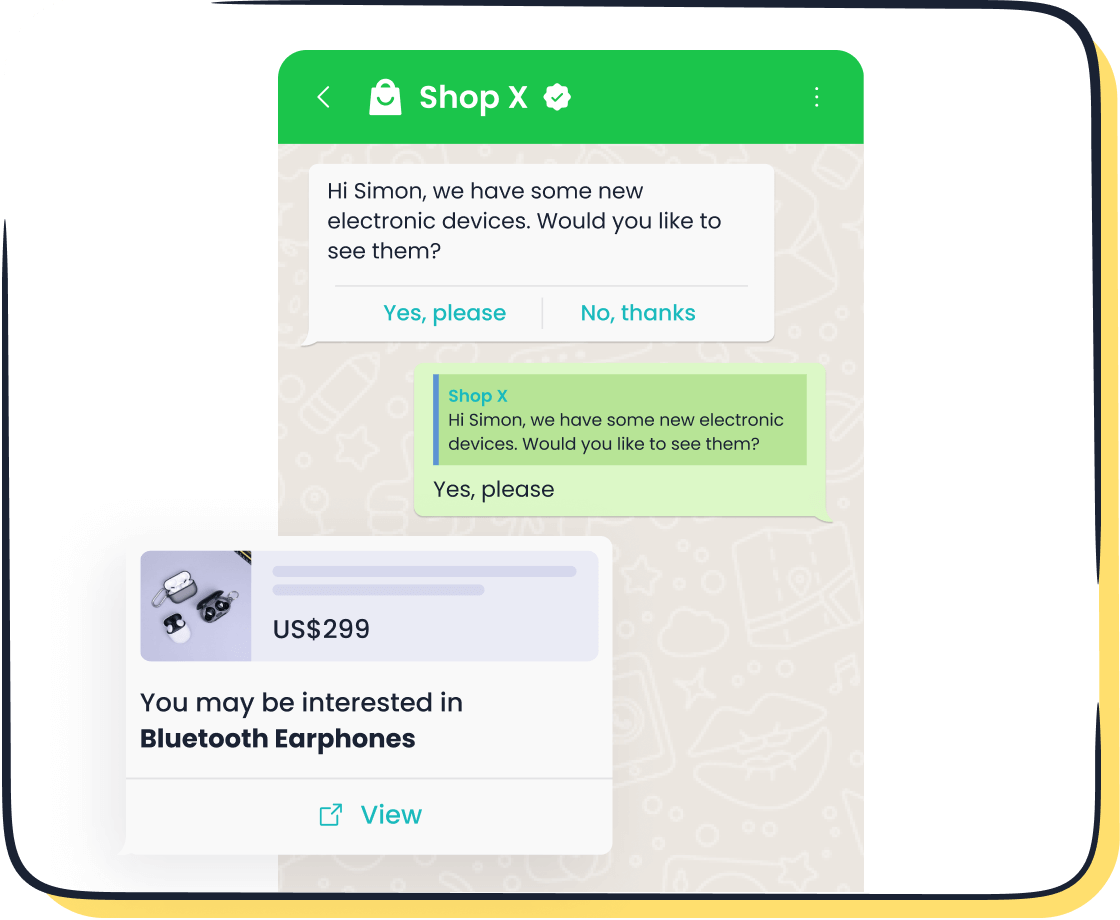
For example, Sobot’s WhatsApp Business API helps you leverage this model with features like 24/7 chatbot support and smart chat routing. These tools enable you to maximize free service conversations and reduce costs. By adopting this model, you can improve customer satisfaction while optimizing your communication expenses.
Types of Conversations in WhatsApp Business API Pricing

Utility Conversations: Definition and Examples
Utility conversations focus on transactional updates that provide essential information to your customers. These include messages like delivery updates, payment confirmations, or appointment reminders. For example, a logistics company like J&T Express can use utility conversations to notify customers about package delivery statuses. These messages ensure timely communication and improve customer satisfaction.
Utility conversations are often the most cost-effective type. For instance, in India, the cost per conversation for utility messages is as low as $0.0014, while in Germany, it is $0.0550. This affordability makes utility conversations ideal for businesses aiming to streamline operations without incurring high charges.
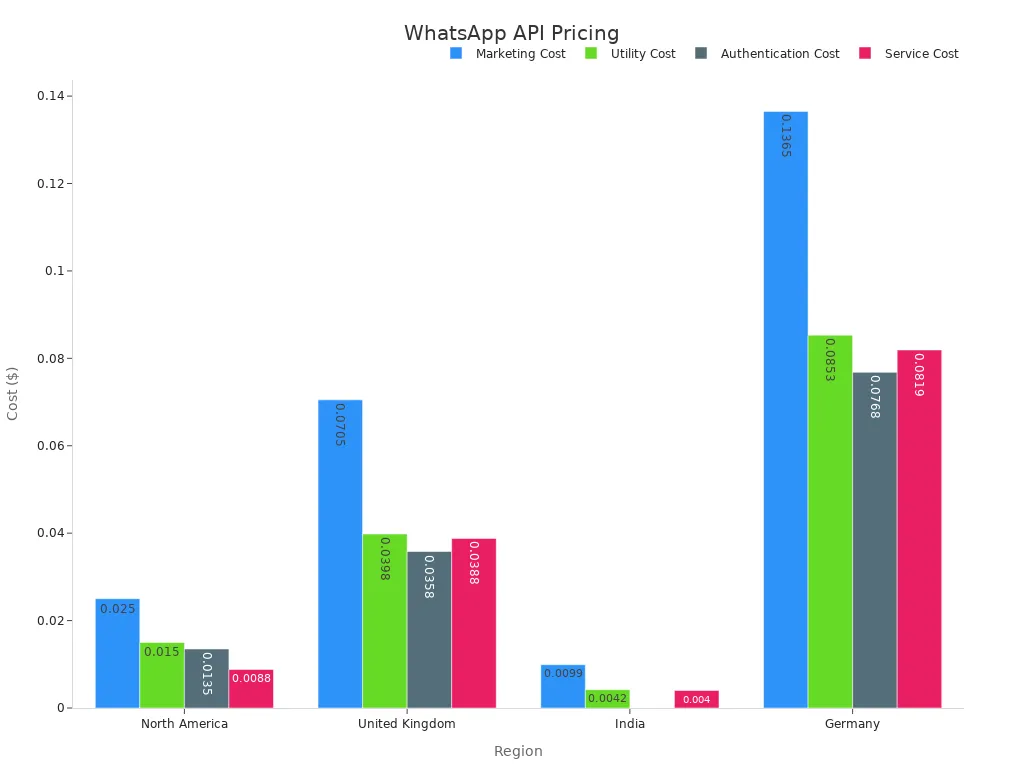
Authentication Conversations: Definition and Examples
Authentication conversations are used to verify a customer’s identity. These are crucial for industries like financial services, where security is a top priority. For example, a bank can send a one-time password (OTP) via WhatsApp to authenticate a transaction. This ensures secure and seamless interactions.
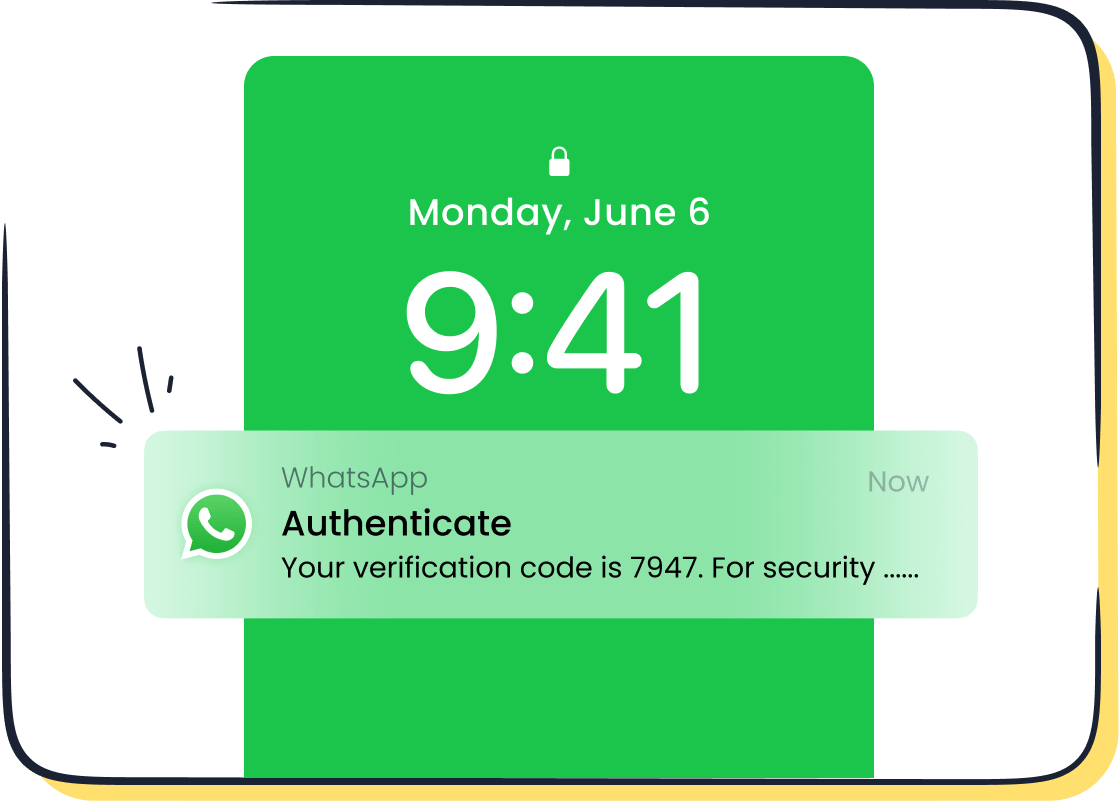
The cost of authentication conversations varies by region. In the United States, the charge is $0.0135, while in Singapore, it is $0.0425. These conversations not only enhance security but also build trust with your customers. By using Sobot’s WhatsApp Business API, you can automate these processes, ensuring efficiency and reliability.
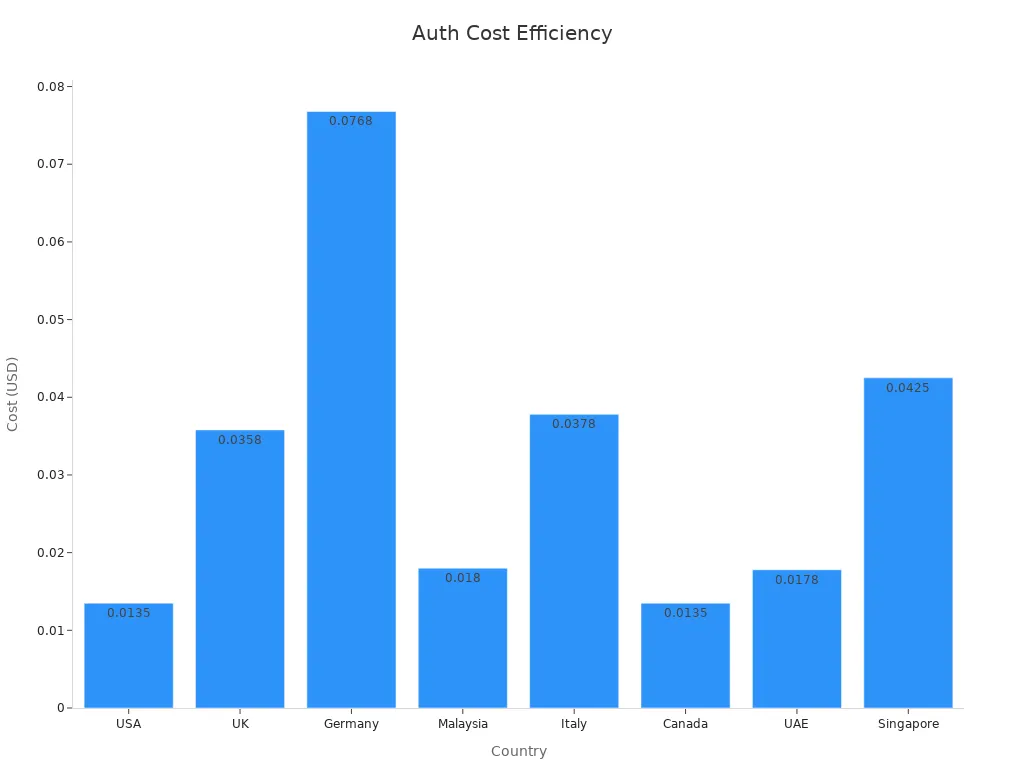
Marketing Conversations: Definition and Examples
Marketing conversations are designed to promote your products or services. These include messages like promotional offers, product launches, or event invitations. For example, a retail business can use WhatsApp to send personalized discount codes to its customers, driving engagement and sales.
Marketing conversations tend to have higher charges compared to utility or authentication conversations. In Brazil, the cost per conversation for marketing messages is $0.0625, while in India, it is $0.0107. However, the high open rate of 98% and click-through rates of 45-60% make WhatsApp an effective channel for marketing campaigns. Sobot’s WhatsApp Business API allows you to track metrics like cost per delivered message and cost per URL button click, helping you optimize your marketing ROI.
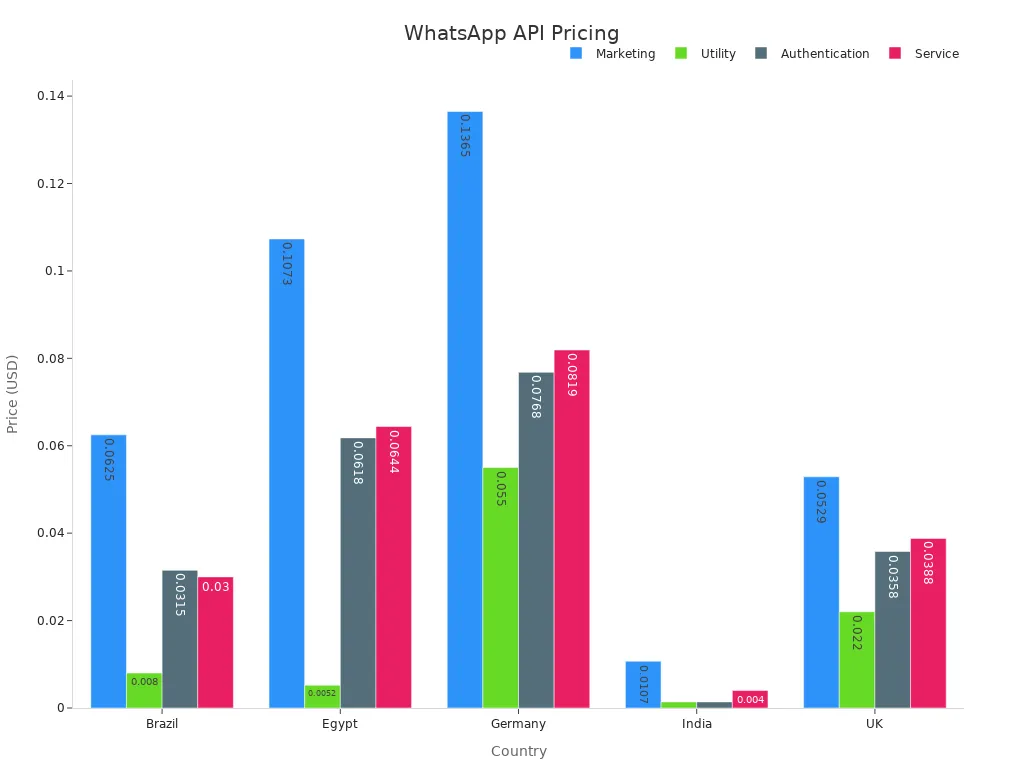
Service Conversations: Definition and Examples
Service conversations focus on resolving customer inquiries and providing support. These interactions often involve troubleshooting, answering questions, or offering guidance. For example, a gaming company might use WhatsApp to assist players with account recovery or technical issues. These conversations enhance customer satisfaction by addressing concerns promptly.
WhatsApp Business API categorizes service conversations into two types:
- User-Initiated Conversations: These begin when a customer sends the first message to your business.
- Business-Initiated Conversations: These occur when your business reaches out to a customer to provide assistance or follow up.
| Conversation Type | Description |
|---|---|
| User-Initiated Conversations | Triggered when a user sends the first message to the business. |
| Business-Initiated Conversations | When the business initiates the conversation to engage with the user. |
You can optimize service conversations by leveraging WhatsApp’s free 24-hour service window. When a customer replies within this timeframe, you can continue the conversation without incurring additional charges. This strategy reduces costs while maintaining effective communication. Encouraging customers to initiate conversations organically also minimizes pricing-related expenses.
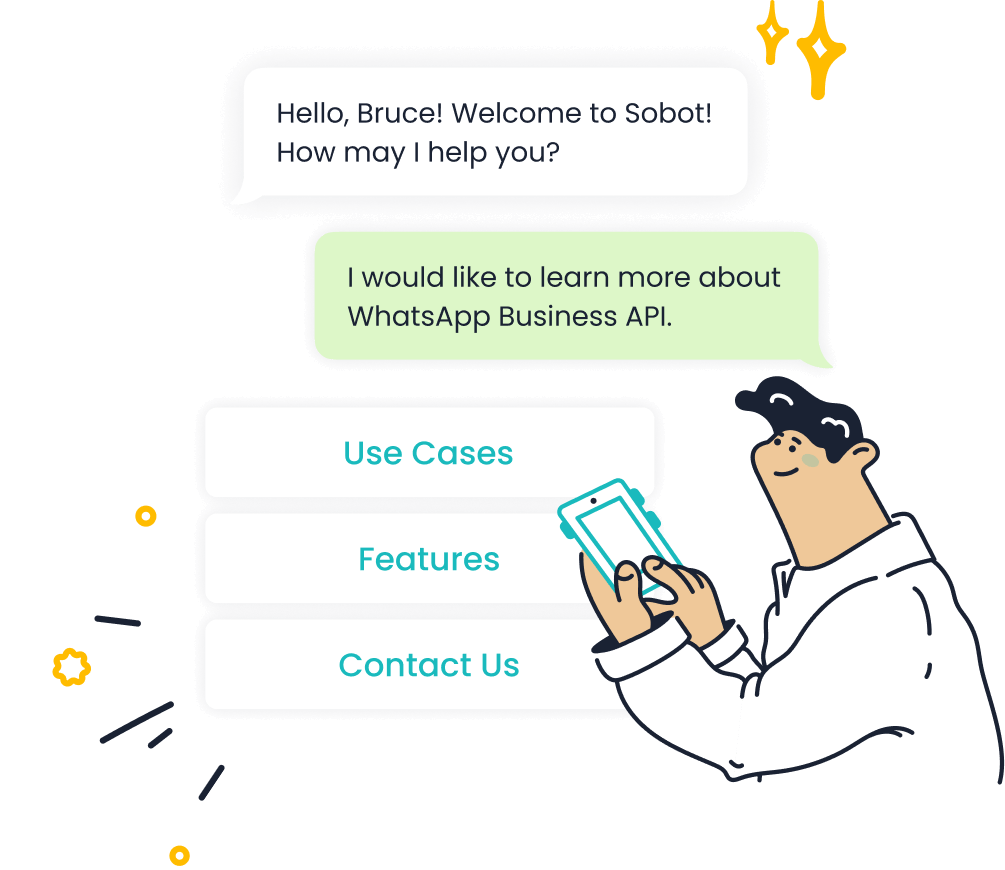
Sobot’s WhatsApp Business API simplifies service conversations with features like smart chat routing and 24/7 chatbot support. These tools ensure quick responses and efficient issue resolution. For instance, Sobot’s API allows multiple agents to manage conversations seamlessly, ensuring no customer query goes unanswered. By integrating automation and analytics, you can monitor conversation metrics and refine your approach to customer support.
Service conversations play a vital role in building trust and loyalty. They demonstrate your commitment to addressing customer needs, which strengthens relationships and improves retention. With WhatsApp’s high engagement rates, service conversations become a cost-effective way to enhance customer communication.
Regional Pricing Variations in WhatsApp Business API
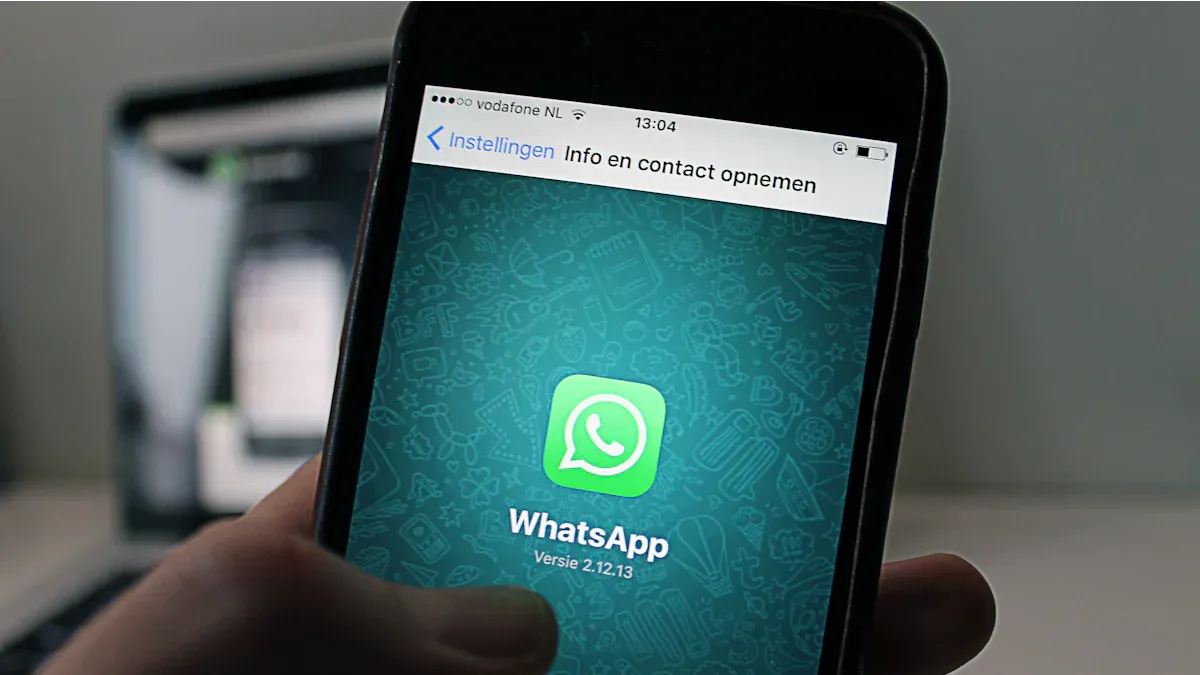
How Regional Pricing Works
Regional pricing in the WhatsApp Business API reflects the economic conditions and market dynamics of different countries. WhatsApp adjusts its charges based on factors like purchasing power, local demand, and operational costs. This ensures businesses in diverse regions can access the platform affordably while maintaining profitability for WhatsApp.
For example, utility conversations in India cost as little as $0.0014 per conversation, while the same service in Germany costs $0.0550. This pricing model allows businesses to tailor their communication strategies to their regional budgets. By understanding these variations, you can optimize your costs and allocate resources effectively.
Factors Influencing Regional Pricing
Several factors influence regional WhatsApp conversation charges. These include:
- Economic Conditions: Countries with lower GDP per capita often have reduced pricing to make the service accessible.
- Market Demand: High demand for WhatsApp Business API in certain regions can lead to competitive pricing adjustments.
- Operational Costs: WhatsApp considers the cost of maintaining infrastructure and compliance with local regulations.
- User Base Size: Regions with a larger WhatsApp user base may benefit from economies of scale, resulting in lower charges.
Understanding these factors helps you plan your communication strategies. For instance, businesses in regions with higher charges can focus on maximizing free service conversations to reduce costs.
Examples of Regional Pricing Scenarios
Regional pricing scenarios highlight how WhatsApp Business API charges vary across conversation types and regions. The table below provides a clear comparison:
| Type of Conversation | Description | Pricing Details |
|---|---|---|
| User-Initiated | The user contacts the business and receives a response within 24 hours. | No charge for messages within a 24-hour window; unlimited messages can be exchanged. |
| Business-Initiated | The business contacts the user or responds after 24 hours. | Charges apply for initiating the conversation; requires user opt-in and an approved message template. |
For example, in Brazil, marketing conversations cost $0.0625 per conversation, while in India, they cost $0.0107. These differences emphasize the importance of tailoring your communication strategies to regional pricing structures. Sobot’s WhatsApp Business API simplifies this process by providing tools like data analytics and workflow automation, enabling you to monitor costs and optimize your campaigns effectively.
Strategies to Optimize Costs with Sobot’s WhatsApp Business API
Leveraging Free Entry Points
Free entry points offer an excellent way to reduce charges while maintaining effective communication with your customers. WhatsApp provides free 72-hour conversation windows when initiated through specific channels. For example, using a "Click to WhatsApp Ad" on Meta platforms allows you to start conversations without incurring immediate costs. Similarly, adding a WhatsApp button to your Facebook page encourages users to reach out, opening a free window for interaction.
These strategies not only save costs but also improve customer engagement. By leveraging Sobot’s WhatsApp Business API, you can integrate these entry points seamlessly into your communication strategy. Features like data analytics help you track the performance of these campaigns, ensuring you maximize their potential while keeping costs low.
| Strategy | Description |
|---|---|
| Click to WhatsApp Ad | Utilizes Meta's advertising to initiate a conversation, opening a free 72-hour window. |
| Facebook Page CTA | Adds a WhatsApp button on Facebook, allowing users to start a conversation for free for 72 hours. |
Using Automation and Chatbots
Automation and chatbots play a crucial role in optimizing costs. Chatbots handle repetitive tasks, such as answering FAQs or sending notifications, reducing the need for human intervention. This approach not only saves time but also enhances operational efficiency. For instance, J&T Express achieved a 35% increase in delivery rates by automating delivery confirmations through Sobot’s WhatsApp Business API.
Chatbots also improve customer satisfaction by providing instant responses. They deliver personalized information, assist with post-sales support, and streamline internal processes. These benefits translate into significant cost savings. With Sobot’s API, you can deploy AI-powered chatbots that operate 24/7, ensuring uninterrupted customer service while minimizing labor costs.
| Evidence Description | Key Benefit |
|---|---|
| Chatbots streamline internal processes and improve customer service. | Enhances cost efficiency by reducing the need for human intervention. |
| They automate various processes, saving significant time. | Increases operational efficiency and reduces labor costs. |
| Chatbots deliver information and notifications instantly. | Lowers costs associated with customer communication. |
| They assist in post-sales support and personalized information delivery. | Improves customer retention and satisfaction, leading to cost savings. |
Efficient Conversation Management
Managing conversations efficiently ensures you get the most out of WhatsApp’s pricing model. Monitoring key metrics like delivery rates, response times, and engagement levels helps you identify areas for improvement. For example, tracking read receipts and interaction frequency allows you to refine your communication strategy.
Sobot’s WhatsApp Business API simplifies this process with tools like smart chat routing and multiple logins. These features enable your team to handle conversations seamlessly, ensuring no customer query goes unanswered. Additionally, using message templates for common inquiries reduces response times and improves consistency. By analyzing customer behavior patterns, you can tailor future conversations to meet their preferences, enhancing both satisfaction and cost efficiency.
- Message Delivery Metrics: Monitor delivery rates and reasons for non-delivery to ensure messages reach recipients.
- Response Times: Track how quickly customer inquiries are addressed to gauge support efficiency.
- Engagement Metrics: Analyze read receipts and interaction frequency to understand customer engagement.
- Customer Feedback: Gather insights directly from customers to assess their perception of communication.
Monitoring and Analyzing Conversation Metrics
Monitoring and analyzing conversation metrics in the WhatsApp Business API is essential for improving your business communication strategy. By tracking key metrics, you can identify areas for improvement, enhance customer engagement, and optimize costs. These insights allow you to refine your approach and ensure your conversations deliver maximum value.
Here are some critical metrics you should monitor:
| Metric | Description | Importance |
|---|---|---|
| Message Open Rate | Percentage of messages opened by recipients. | Indicates effective targeting and content engagement. |
| Response Rate | Percentage of customers responding to messages. | High rates indicate strong engagement; low rates suggest issues with message relevance. |
| Average Response Time | Time taken for companies to respond to inquiries. | Faster times improve customer satisfaction and retention. |
| Customer Satisfaction Score | Feedback collected post-interaction to measure satisfaction. | Assesses how well communications meet customer expectations. |
| Conversion Rate | Percentage of customers taking desired actions post-interaction. | Shows effectiveness of sales and promotions via WhatsApp. |
| Abandonment Rate | Identifies where customers drop off in conversations. | Helps improve chatbot scripts and message flows. |
| Chatbot Efficiency Metrics | Includes self-resolution and escalation rates. | Aids in improving chatbot training and automation strategies. |
| Retention Rate | Measures how many customers return to interact over time. | High rates indicate valuable engagement and strong relationships. |
For example, tracking the response rate helps you understand how well your messages resonate with customers. A low rate might indicate that your message templates need adjustments. Similarly, monitoring the abandonment rate can reveal where customers lose interest, allowing you to refine your chatbot scripts or conversation flows.
Sobot’s WhatsApp Business API simplifies this process with advanced analytics tools. These tools provide real-time data on metrics like open rates, response times, and customer satisfaction scores. By leveraging these insights, you can make data-driven decisions to improve your communication strategy. For instance, J&T Express used Sobot’s API to monitor delivery confirmation messages, achieving a 35% increase in delivery rates and a 50% reduction in costs.
Analyzing metrics not only enhances customer satisfaction but also aligns your communication efforts with your business goals. With Sobot’s solutions, you can ensure your WhatsApp conversations remain efficient, cost-effective, and impactful.
Why Understanding WhatsApp Business API Pricing Matters for Customer Success
Enhancing Customer Support and Engagement
Understanding the pricing structure of the WhatsApp Business API allows you to optimize customer support and engagement strategies. With WhatsApp’s 98% average open rate compared to email’s 22%, your messages are more likely to reach and resonate with customers. This high engagement rate ensures that your conversations deliver value, whether you’re resolving issues or sharing updates.
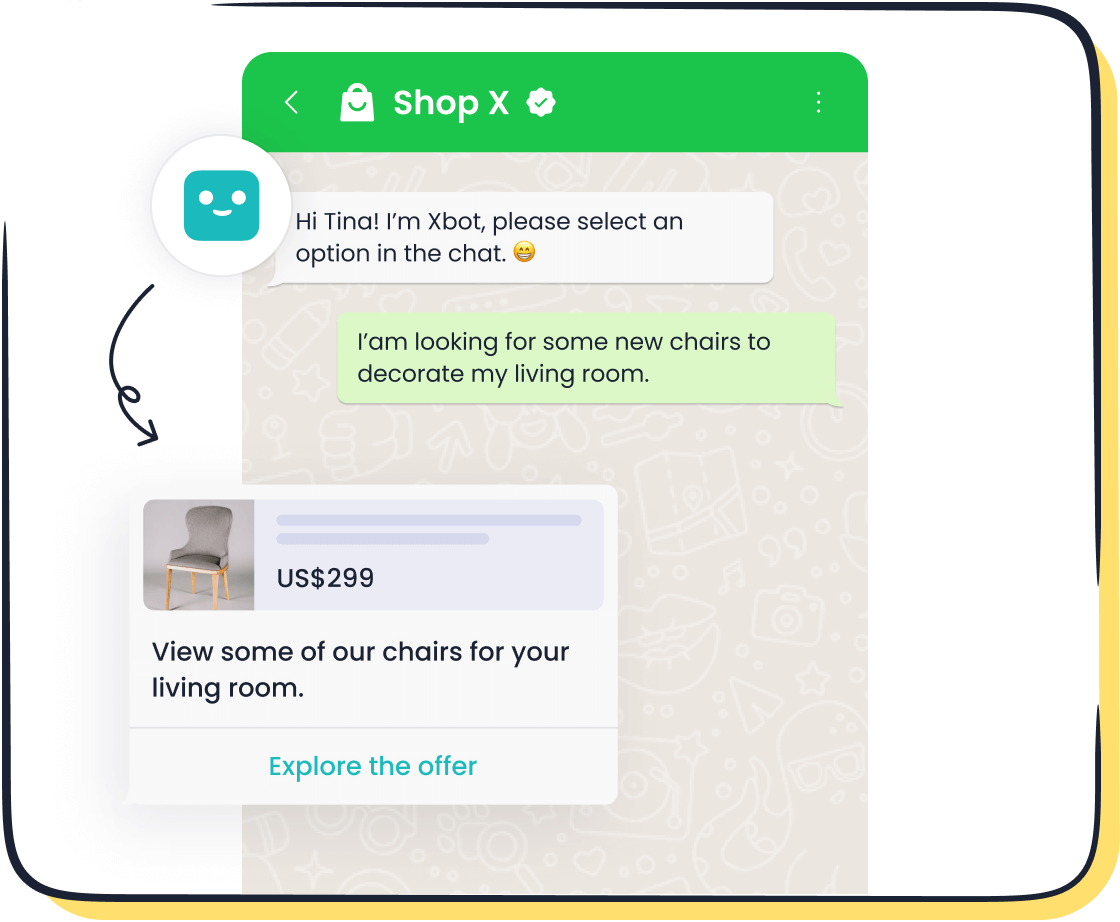
By leveraging the conversation-based pricing model, you can focus on meaningful interactions rather than worrying about individual message charges. For instance, Sobot’s WhatsApp Business API offers features like 24/7 chatbot support and smart chat routing. These tools ensure quick responses and seamless communication, reducing customer effort by 10.8 times. This efficiency not only enhances satisfaction but also builds trust, making your business a preferred choice for customers.
| Metric | Value |
|---|---|
| Average Open Rate | 98% (WhatsApp) vs. 22% (Email) |
| Customer Retention Improvement | 48% YoY increase |
| Return on Marketing Investment | 20.7x YoY increase (with chat) |
| Customer Effort Reduction | 10.8x decrease |
Aligning Costs with Business Goals
The WhatsApp Business API’s pricing model directly impacts your financial planning and customer interaction strategies. By understanding the charges associated with different types of conversations, you can align your communication efforts with your business objectives. For example, utility conversations are cost-effective for transactional updates, while marketing conversations drive sales and engagement.
Sobot’s WhatsApp Business API simplifies cost management with advanced analytics. These tools help you monitor metrics like cost per conversation and ROI, enabling you to allocate resources effectively. Whether you’re a retail business promoting discounts or a logistics company sending delivery updates, aligning costs with your goals ensures maximum impact. This strategic approach not only optimizes your budget but also enhances customer satisfaction.
| Aspect | Details |
|---|---|
| Pricing Model | Conversation-based pricing model impacts budgeting for customer interactions. |
| Financial Planning Impact | Understanding costs is crucial for effective financial planning. |
| Customer Engagement Strategy | Maximizing customer engagement strategies relies on knowledge of pricing. |
Building Long-Term Customer Relationships
Strategic pricing through the WhatsApp Business API fosters long-term customer relationships. Personalized, two-way communication strengthens trust and loyalty. For instance, tailored messages and proactive problem-solving demonstrate your commitment to customer satisfaction. These interactions encourage repeat business and improve retention rates.
Sobot’s WhatsApp Business API supports this approach with features like workflow automation and data analytics. These tools allow you to offer customized promotions and address issues before they escalate. High-quality interactions, such as those enabled by Sobot, are more cost-effective than traditional methods. They ensure your customers feel valued, which is essential for building lasting relationships.
| Key Factors Influencing Customer Retention | Description |
|---|---|
| Quality of service | Essential for customer satisfaction and loyalty. |
| Personalized communication | Tailored messages enhance customer experience. |
| Consistent engagement | Regular interactions keep customers connected. |
| Proactive problem solving | Addressing issues before they escalate builds trust. |
Utilizing the WhatsApp Business API ensures your communication strategy remains efficient and impactful. By focusing on quality and personalization, you can maintain long-term customer satisfaction while optimizing costs.
Conversation-based pricing in the WhatsApp Business API simplifies cost management by grouping messages into 24-hour windows. This model categorizes conversations into utility, authentication, marketing, and service types, with regional pricing variations. For example, marketing conversations cost $0.046 in Indonesia and $0.043 in the UAE. You can optimize costs by maximizing free service conversations, using templates, and sending proactive notifications.
Sobot’s WhatsApp Business API enhances this model with features like automation and analytics, ensuring efficient communication. By adopting this approach, you can improve customer satisfaction, align costs with goals, and build lasting relationships.
FAQ
What are the benefits of using WhatsApp Business API for customer communication?
WhatsApp Business API offers high engagement rates, with an average open rate of 98%. It supports automation, bulk messaging, and smart routing. These features improve customer satisfaction and reduce operational costs. As one of the leading WhatsApp business solution providers, Sobot ensures seamless integration and reliable performance.
How does WhatsApp categorize the types of conversation?
WhatsApp divides conversations into four categories: utility, authentication, marketing, and service. Each type serves a specific purpose, such as transactional updates or promotional messages. Understanding these types of conversation helps you optimize costs and improve communication strategies.
Can I use WhatsApp Business API for free?
You can initiate free conversations through specific entry points, like "Click to WhatsApp Ads" or a WhatsApp button on your Facebook page. These methods open a 72-hour free conversation window, allowing you to engage customers without incurring charges.
How does Sobot enhance WhatsApp Business API usage?
Sobot provides advanced tools like 24/7 chatbot support, workflow automation, and data analytics. These features help you manage conversations efficiently, track performance, and reduce costs. As a trusted WhatsApp business solution provider, Sobot ensures your communication strategy aligns with your business goals.
What factors influence WhatsApp Business API pricing?
Pricing depends on the region, conversation type, and whether the interaction is user-initiated or business-initiated. For example, utility conversations in India cost $0.0014, while in Germany, they cost $0.0550. Sobot’s analytics tools help you monitor these costs and optimize your strategy.
See Also
Setting Up Batch Messaging For Your WhatsApp Business Account
The Impact of WhatsApp Chat on Website User Engagement
Top Strategies For Integrating WhatsApp On Your Website